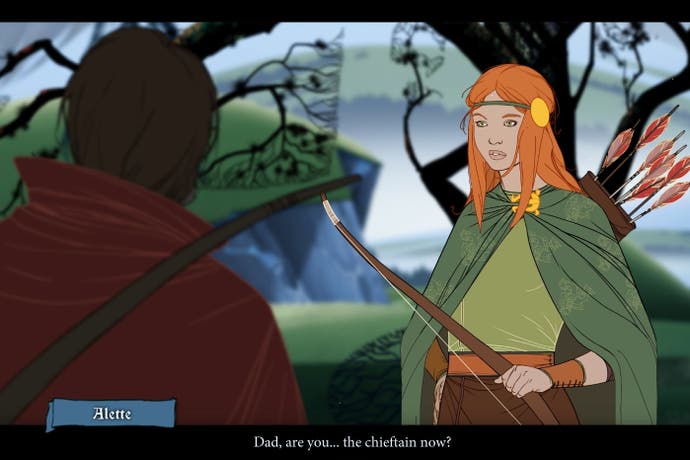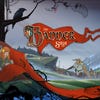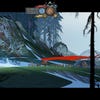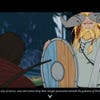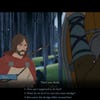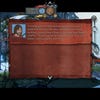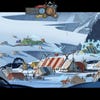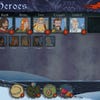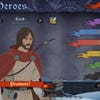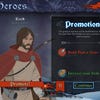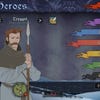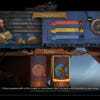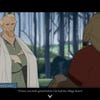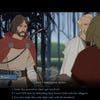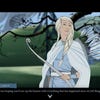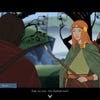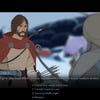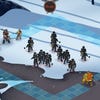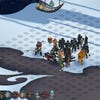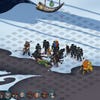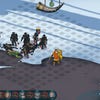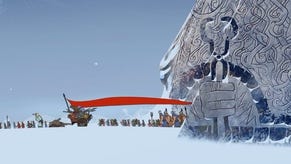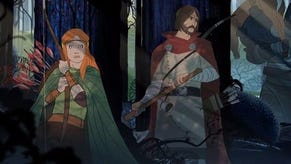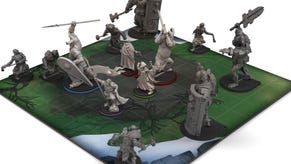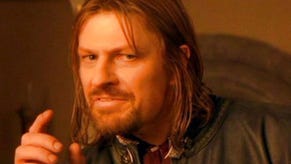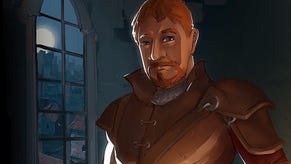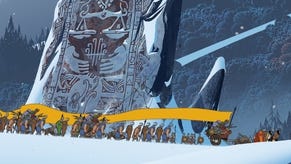The Banner Saga: Much more than you're expecting
And only the first of three beautiful storied adventures.
So much has changed. For six years they were ants in a colony - three people amongst the hundreds building Star Wars: The Old Republic at BioWare Austin. Then, two years ago, they broke away and followed a dream - an idea for a game that had been buzzing around their heads since childhood. They swapped the security of a corporation for a shed-of-an-office behind a bar and laid down a plan: six months, tiny budget, game. Any more and they'd have to dip into their respective family's savings. This way, if things didn't work out, they could just about shrug it off and get a job again.
"But we had to take a chance on it."
Then they struck gold, Kickstarter gold. Friends who'd raised $5000 there egged them on, and as they were preparing their pitch, along came Tim Schafer with Double Fine Adventure and blew the vein wide open. In one week, the amount they were going to ask for changed from $10,000 to $30,000 to $50,000 to $100,000. But still they were nervous.
They shouldn't have been, because in 24 hours their game, The Banner Saga, had reached its goal. They were, co-founder Alex Thomas tells me, "dumbfounded". And worried. "Everything goes up when that happens," he explains - money, expectation. "And now any kind of failure is a public failure, and that's something to be concerned about. But at the same time you're riding this high of 'how much can we raise now?!'."
It was one of three times the three men of Stoic used the on-site bar.
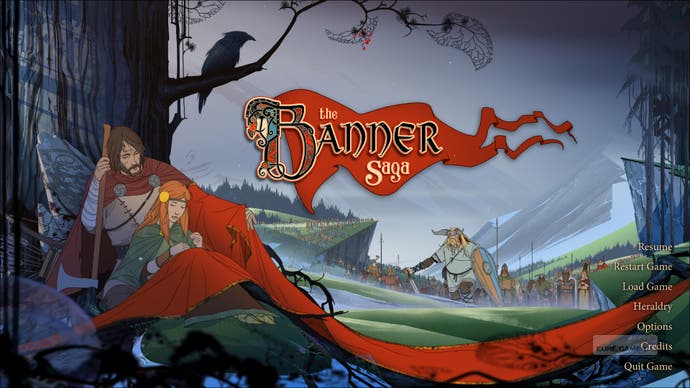
Was it the team's BioWare past that excited people? Were people imagining a triple-A blockbuster like Mass Effect? Thomas thinks so, but I don't. I think people were captivated by Arnie Jorgensen's beautiful Viking artwork, and the promise of a storied, strategical, turn-based adventure for adults. Because I was.
That was in April 2012.
Today we're a month from The Banner Saga's 14th January, £18.99, release (there's an additional 20 per cent discount, plus a little gift, for pre-ordering now). There were delays and changes but what's been created is something "much bigger" than originally conceived. And, I'm excited to find out, this is only the first of three planned games, each linked (like Mass Effect, coincidentally) by one giant story.
The Banner Saga: Factions is separate to that. Released on Steam at the start of the year, this was, and is, a free multiplayer game (with optional costs for character variations) showcasing the game's combat, world and style - a demo of sorts.
"Yeah, hmm, jury's out on whether that was a great idea," Thomas reflects. It's not that Factions didn't do its job: more than 150,000 people played, a core following formed and the game's rigorously tested combat is better as a result. The problem is, Factions messed up people's perception of what The Banner Saga is. People didn't realise there was a single-player game: they thought Factions was it - all of it.
Factions will live on and will remain the only place you can play The Banner Saga against your friends and other people. There will be no multiplayer in The Banner Saga single-player story games. Stoic didn't want to "muddy" the message any further. "Factions is its own thing," Thomas says, and will be, he hopes, "the glue that keeps the franchise going between major releases".
"Factions is its own thing. ... the glue that keeps the franchise going between major releases."
Alex Thomas
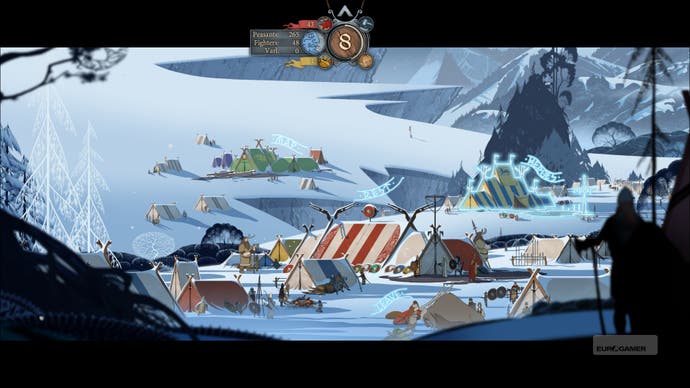
There will be new content for Factions after the "main game", The Banner Saga proper, comes out. New characters may unlock as you come across them in the single-player game, and your town will eventually be upgradable.
But Factions is just combat: "The full game is so much bigger." It's much more than a string of combat situations with exposition along the way. "People are going to be really surprised at how huge the story is in this," Thomas believes.
"I'm pretty much the only one writing on it, so I'm not going to say 'I wrote as much as a 30-person team of writers', but if you've played Mass Effect or Dragon Age, I feel like it's roughly as big as a main story-arc, not counting all the side content.
"It's a really large game."
The Banner Saga plots the story of various clans of Vikings either on a journey to a capital city or outrunning an evil menace that destroyed their home. It's a journey that will take you a dozen hours to see through, a journey filled with decisions and consequences, a journey fraught with peril, and all of it sewn into and recorded on your clan's banner. You'll become emotionally attached to the heroes you collect, and there are something like 26 to discover. In that sense The Banner Saga is like a BioWare adventure. But there's a key difference.
"With a big game like Dragon Age or Mass Effect, a Hollywood blockbuster, you know who's going to survive and who isn't. They're not going to throw out a ton of work because they let you kill off a character early; they're not going to let the main character die.
"... Because we're indie," Thomas adds, "we can do whatever we want." He takes his cues from George RR Martin's brutal A Song of Fire and Ice (A Game of Thrones) fiction, and from Black Company. "Nobody's really safe," he says. Characters can be lost to different events, choose to leave or simply be killed. "We're going to kill off a lot of characters that you love, dammit!" he adds with a laugh.
The characters who do survive will travel with you into future Banner Saga games, though, as importable saved games are "absolutely" part of the plan.
"... if you've played Mass Effect or Dragon Age, I feel like it's roughly as big as a main story-arc ..."
Alex Thomas
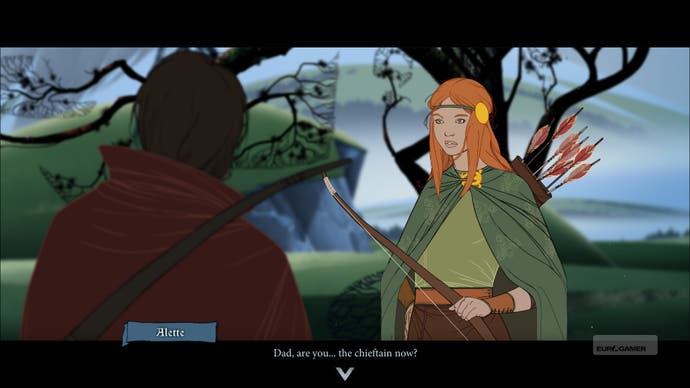
I've spent a few hours with a preview build of The Banner Saga, which is where I took the screenshots embedded in this article. And it's everything I hoped it would be: challenging, engaging, beautiful and deep. The story is told from multiple viewpoints that change with each chapter as you progress, both tales starting at opposite ends of the map but no doubt destined to collide. Protecting the different caravans of followers as they travel throws up varied and interesting situations, each with numerous and equally appealing solutions.
Combat requires real strategy and thought from the off, and fortunately characters don't permanently die if they fall in battle, but rather are injured and less effective in the next battle they face, unless they rest. There are special abilities, items to equip and promotions (level-ups) earned through kills. Character progression looks fairly limited but it's there nonetheless.
The art is beautiful and the musical accompaniment well suited, but while there's a strong voice-over that introduces the game, it soon fades away in favour of the written word, and lots of it. That's not a problem, but keeping your eyes on the bottom of the screen during dialogue scenes, instead of on the almost imperceptibly animated - but no less captivating - character portraits, is a bother.
Nevertheless, The Banner Saga has me, and I'm eager for more.
Nevertheless, The Banner Saga has me, and I'm eager for more.
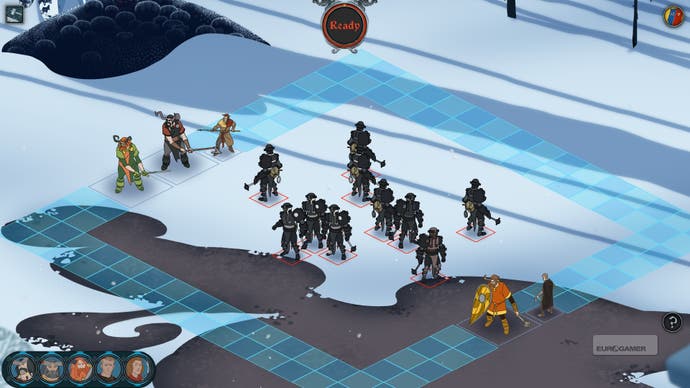
The fate of the grander Banner Saga vision, the trilogy, depends on how the first instalment goes down in January. If everything falls through, and I very much doubt it will, then we'll be left with one game Thomas says has a very definite beginning and end. We won't be left hanging, in other words, but we will be pondering bigger questions about the game's wider world.
Should The Banner Saga be a success and the trilogy go ahead then there's plenty Thomas already has in mind for it, including an ending that already looks "doable" from where he's sitting ("phew", exhale BioWare fans everywhere).
There will also be possible conversions to other platforms - any that make sense. PC and Mac are a given, and tablets will probably follow. Consoles aren't off the table either but it depends on time and resources and want.
"I'm hoping people come away really blown away by a much more involving game than they are expecting."
Alex Thomas
So much has changed in two years, then, and Stoic is on the cusp of cementing the life-changing direction that Kickstarter afforded. But one thing didn't change when the Kickstarter bucks rolled in, and it's one thing that makes me confident about Stoic's future: there are still only three people working there. They didn't bulk up, they sensibly contracted help, and now they are back down to three. And that means small overheads.
Thomas calculated what he'd need The Banner Saga to sell in order for the dream to stay alive and "it was really a very small number that we need to, you know, maintain living conditions". "And it's looking pretty promising for considerably more than that," he adds.
"I'm hoping people come away really blown away by a much more involving game than they are expecting," he finishes up. "We designed something that a three-person team could make feel like a big studio produced, this large engaging RPG. I'm hoping people come away invested in the world that we made, wanting to see it through with their characters and find out what happens."
